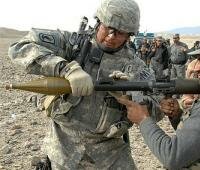Climate change
Climate change is high on both domestic and international political agendas as countries face up to the huge environmental challenges the world now faces. Whilst this attention is welcome, less energy is being focused on the inevitable impact climate change will have on security issues. The well-documented physical effects of climate change will have knock-on socio-economic impacts, such as loss of infrastructure, resource scarcity and the mass displacement of peoples. These in turn could produce serious security consequences that will present new challenges to governments trying to maintain stability.




 The Climate Change and The Military (CCTM) Project, based on the co-operation of a group of leading think tanks, "will orchestrate a strong message from the security sector to the December 2009 climate change negotiations taking place at COP 15 in Copenhagen" according to Tom Spencer, the CCTM Project Coordinator (pictured left).
The Climate Change and The Military (CCTM) Project, based on the co-operation of a group of leading think tanks, "will orchestrate a strong message from the security sector to the December 2009 climate change negotiations taking place at COP 15 in Copenhagen" according to Tom Spencer, the CCTM Project Coordinator (pictured left).